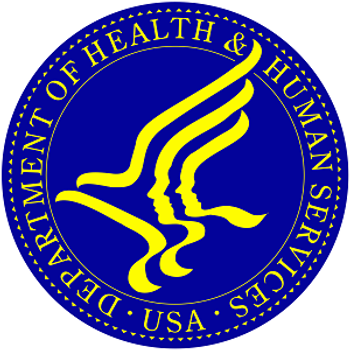
Technology has made it easier to deliver health care in the home in recent years, but the financing models have not caught up just yet.

Technology has made it easier to deliver health care in the home in recent years, but the financing models have not caught up just yet.

The American Society of Hematology has adopted 10 of the recommendations from Choosing Wisely to encourage more high-value care, but barriers to adoption remain.

Administrator Seema Verma said the proposal would create opportunities "for drug manufacturers to have skin in the game through payment arrangements that challenge them to put their money where their mouth is."


When deciding which treatments to cover, states and commercial payers must wrestle with opportunity costs as new therapeutics come to market. A panel at Virtual ISPOR 2020 discussed some of the factors that go into those decisions.

Two of the panelists appearing during the Virtual ISPOR 2020 meeting preview what's needed in improving value assessment: Lou Garrison, PhD, of the University of Washington, and Leah Howard, JD, of the National Psoriasis Foundation.

Accountable care organizations (ACOs) have saved Medicare a total of $3.53 billion from 2013 to 2017, or $755 million after shared savings were paid out, according to a new report from the National Association of ACOs (NAACOS).

Value needs to be considered early in the development life cycle of a therapy and should be continued throughout, even into the postlaunch space using real-world studies, according to a presentation on value-based services and their life cycles at the AMCP Nexus 2019 meeting.

In a long-awaited move, HHS announced Tuesday plans to reform federal antikickback statutes and overhaul the so-called Stark Law, which was originally intended as a safeguard against financial incentives that would inappropriately influence physicians’ clinical decisions, in an effort to speed the transition to value-based care.

During a panel discussion on defining, standardizing, and reporting quality in cancer care during the National Comprehensive Cancer Network Policy Summit held September 12 in Washington, DC, it became clear that stakeholders of all backgrounds have set their focus on one type of metric in particular: patient-reported outcomes.

With Oncology Care Model performance period 4 results out now, it’s a transformative point in the model in which practices that have not yet achieved a performance-based payment have to either enter 2-sided risk or leave the model. To dive into the most recent results and their implications, we spoke with Charles Saunders, MD, chief executive officer of Integra Connect.

To date, most alternative payment models (APMs) that have emerged in the shift toward value-based care have been initiated by payers and focused on primary care providers. However, there has recently been a new wave of payment reform in which providers, mostly specialists, are designing and implementing their own APMs in their practices. A study published in the September issue of The American Journal of Managed Care® analyzed some of these new payment models to gain insight into what providers are prioritizing in their APMs.

Value-based programs such as accountable care organizations appear to encourage the adoption and spread of care coordination activities by hospitals.

On this episode of Managed Care Cast, we’re bringing you a portion of a panel discussion about the Oncology Care Model, held in July 2019 during a meeting of The Institute for Value-Based Medicine® (IVBM), an initiative of The American Journal of Managed Care®. At IVBM events, we gather thought leaders to share best practices across medicine, pharmacy, and management in regional locations around the country. This podcast is taken from our meeting focusing on Innovation and Quality in Oncology Care.

Transitioning to value-based care is a marathon, not a race, and should be viewed as a mission and a culture, Jeff Hunnicutt, chief executive officer at Highlands Oncology Group, told Amy Ellis, director of quality and value-based care at Northwest Medical Specialties. In order to successfully transform a practice, there needs to be a clear message and set values ingrained in the mindset of staff at the frontline of patient care.

The University of Michigan Center for Value-Based Insurance Design (V-BID), in collaboration with a group of healthcare stakeholders, has announced the details of V-BID X, a template for reducing cost sharing for certain high-value services and raising cost sharing for certain low-value services while not increasing premiums or deductibles.

A new report from the HHS’ Office of the Inspector General praises 20 high-performing accountable care organizations (ACOs) for the strategies they are using in the shift to value-based care.

As value-based models continue to change the payment landscape in healthcare, the models require more sophisticated data, analytics, and payment structures, which can lead to more administrative burden, as well as siloed data.

CMS has proposed the mandatory Radiation Oncology Model, which would cover radiation therapy spanning a 90-day episode.

In 2018, 33% of accountable care organizations (ACOs) assumed downside risk, up from 28% in 2012.

A Quest Diagnostics webinar discussed how lab services fit in with value-based care strategies and could reduce total healthcare costs, improve care coordination, and enhance member experiences.

Creating a healthcare system that prioritizes a well-informed consumer and rewards improvements in quality requires overhauling the current system. Through a series of programs and initiatives, CMS, under Administrator Seema Verma’s leadership, is trying to fix some of the issues that plague the current US health system and make accessing care challenging for patients.

Outcomes for patients with cancer are continuously improving, but the increasingly complex healthcare system, new payment and delivery models that place more risk on practices, and rising costs of therapies has made it difficult for independent oncology practices to thrive and survive. However, independent practices present an important part of cancer care, delivering care to patients who are not near large hospital-based systems at lower costs.

At the American Medical Association headquarters Monday, HHS Secretary Alex Azar and CMS Administrator Seema Verma announced 5 new Medicare primary care payment models designed to eventually incentivize the entire healthcare system to transition to value-based care, particulary for patients with chronic conditions.

The concept of value is a well-known topic among health policy experts, the payer community, and policy makers, but patients do not necessarily have the same idea of what value means. When discussions about removing low-value care from the system to save money come up, patients might get the wrong idea of what is going on and why.

The Virginia Center for Health Innovation (VCHI) is receiving a $2.2 million grant from Arnold Ventures to launch a 3-year statewide pilot to reduce the use of low-value care in the state of Virginia.

Low-value care that offers no benefit to patients, or can actually cause more harm than good, is costly to patients and the healthcare system. While low-value services are being identified and measured, it has been more difficult to reduce the use of low-value care.

In a webinar presented by the Health Care Transformation Task Force, Hoangmai Pham, MD, MPH, of Anthem, and A. Mark Fendrick, MD, of the University of Michigan Center for Value-Based Insurance Design, highlighted how to steed the healthcare industry toward a more consumer-centered model based on value-based insurance design.

For 2017, New Jersey's largest insurer made particularly good progress in certain diabetes measures and in cancer screenings.

259 Prospect Plains Rd, Bldg H
Cranbury, NJ 08512
© 2025 MJH Life Sciences®
All rights reserved.
